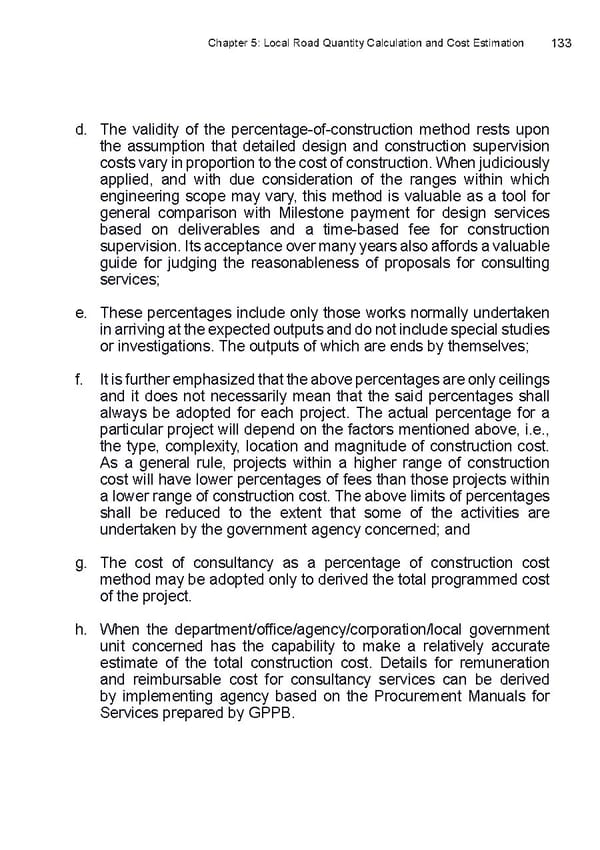Chapter 5: Local Road Quantity Calculation and Cost Estimation 133 d. The validity of the percentage-of-construction method rests upon the assumption that detailed design and construction supervision costs vary in proportion to the cost of construction. When judiciously applied, and with due consideration of the ranges within which engineering scope may vary, this method is valuable as a tool for general comparison with Milestone payment for design services based on deliverables and a time-based fee for construction supervision. Its acceptance over many years also affords a valuable guide for judging the reasonableness of proposals for consulting services; e. These percentages include only those works normally undertaken in arriving at the expected outputs and do not include special studies or investigations. The outputs of which are ends by themselves; f. It is further emphasized that the above percentages are only ceilings and it does not necessarily mean that the said percentages shall always be adopted for each project. The actual percentage for a particular project will depend on the factors mentioned above, i.e., the type, complexity, location and magnitude of construction cost. As a general rule, projects within a higher range of construction cost will have lower percentages of fees than those projects within a lower range of construction cost. The above limits of percentages shall be reduced to the extent that some of the activities are undertaken by the government agency concerned; and g. The cost of consultancy as a percentage of construction cost method may be adopted only to derived the total programmed cost of the project. h. When the department/office/agency/corporation/local government unit concerned has the capability to make a relatively accurate estimate of the total construction cost. Details for remuneration and reimbursable cost for consultancy services can be derived by implementing agency based on the Procurement Manuals for Services prepared by GPPB.
 Local Road Management Manual Page 133 Page 135
Local Road Management Manual Page 133 Page 135